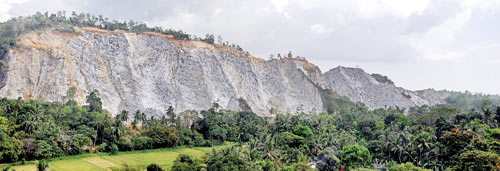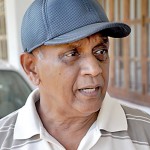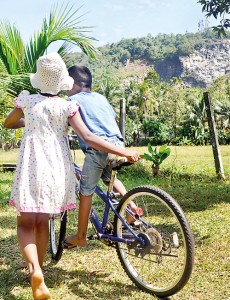News
Korathota quarries manipulated by VIP interests
The people of the Korathota mountain range, 3km from Homagama, live in constant fear of falling rocks from the intense quarrying being carried out in the area and are terrorised by goons hired by corrupt politicians of the current and former governments and fellow businessmen.

Amal Suriyage
Rising through the wetlands of the Kaduwela zone, the once-peaceful Korathota mountain range is in a pitiful state due to the quarrying, which has affected the livelihood of many local residents.
The targeting of Korathota Vihara mountain and several other mountains in the area such as Andhadola mountain, Thalpitigala mountain, Dadigamuwa mountain and Balunagala mountain by quarrying interests has also affected fauna and flora, some of which only exist in these mountains and have been destroyed by the quarrymen.
In addition, the archaeological and historical significance of the mountain range is fading from existence as business interests ignore the area’s links to the era of King Ravana.
Nissanka Perera, president of a local environmental group, Parisara Mithuro, is frustrated by the quarrying, which intensified from 2005. He says pelted rocks from the quarrying process have hit and injured people, including children, and damaged homes.
 “Korathota Mountain is the premier peak in the Colombo district and was a main point in planning the infrastructure of Colombo from the past, especially in designing the Baseline Road,” he said.
“Korathota Mountain is the premier peak in the Colombo district and was a main point in planning the infrastructure of Colombo from the past, especially in designing the Baseline Road,” he said.
“If quarrying continues and the mountains are destroyed the Western Province will be converted into a dry zone in the next couple of years, leaving many farmers in misery.”
According to a gazette notification on the development plan prepared for the Pradeshiya Sabha area of Kaduwela by the former minister of urban development and sacred area development, Dinesh Gunawardena in 2009, Korathota and neighbouring ranges are categorised as a Highland Wet Zone Reserve with guidelines stating that the reserve’s natural resources should not be harmed or contaminated and that development plans should not cause distress to the local community.

Sumithra Ranasinghe
The Sunday Times learns that more than 20 large-scale quarries have been functioning in the area with the permission given by corrupt officials in the Kaduwela Divisional Secretariat and Geological Survey and Mines Bureau (GSMB) with clearance given by the Central Environmental Authority (CEA) and the Archeological Department.

Nissanka Perera
Mr. Perera said stone inscriptions at the historical Korathota Raja Maha Vihara that show the historical significance of the area have been affected by vibrations from constant rock drilling, and the temple was threatened by flying rock from the quarrying.
Mr. Perera criticised the Kaduwela Divisional Secretariat, CEA, GSMB and the Archeological Department for turning a blind eye to corruption and ignoring the public’s welfare.
Sumithra Ranasinghe, a 37-year-old housewife, spoke of her family’s fear of injury from flying rock fragments and said her house and other properties had been damaged through the years with no compensation coming from the quarry owners.
“Once,” she said, “my children were playing outside the house when I noticed an unusual movement in the sky, like a flock of birds coming at our direction. I realised those were pelted bits and pieces from the quarrying and I screamed and took the children and hid ourselves for some time till it was over.
“I was so glad that I was with my children at that time; if I had not been there, my children would not be alive today.”

Children live under constant fear of falling stones from the quarry. Pix by Nilan Maligaspe
P. D. Deepika Ranjani and Somasiri Gunaseka claim they lost their 14-acre property planted with rubber trees, which gave them their main livelihood, as a result of corruption.
Deepika Ranjani told the Sunday Times that her family had been paying taxes for the property since 1980 but had been asked to vacate the property with immediate effect by the then Divisional Secretary in response to a request made by the Urban Development Authority and Defence Ministry in 2011.
She said 42 armed members of the Air Force act as security guards on the site and that the quarrymen, alleged to be soldiers, have taken down all the rubber plants in the land to begin excavating the Andadola Mountain.
Sobbing, the mother of three children said her family had been abandoned without any compensation them from the Divisional Secretariat and the Ministry. She said she has been writing to and meeting various state officials from CEA and GSMB along with ministers of the previous government.
She said the former minister, Janaka Bandara Tennekoon, had advised the Divisional Secretary to return the land and also to stop the quarrying in the zone but the request had been rejected by the relevant authorities.
“We seek help from the ministers from last regime and the new regime too,” Mrs. Deepika Ranjani said.
“When we went to meet the Deputy Minister of Justice, Sujeewa Senasinghe, who is also an MP from the Kaduwela electorate, one of his organisers, sitting next to the minister, told us the quarry on the land would be given to us in compensation for our loss.
“They signed a document and asked us to give to the Grama Sewaka but we are poor farmers and we have no intention of destroying our natural resources as we are fully aware of the value of the land and the mountain to our farming livelihood,” she said.
Amal Suriyage, owner of Hainan Lanka Pte Ltd, a Board of Investment-approved company that assembles bicycles for export, is another victim of the Korathota quarry interests.
He was assaulted in 2010 for lodging a complaint to the police about the quarry’s pollution of the environment and the damage to his factory from flying rock from explosives detonated at a quarry near the factory.
Mr. Suriyage said he had sustained heavy losses since 2006 because the dust particles emitted by the blasting work on the mountain had damaged the paintwork on the bicycles his factory produces.
This had lost him a contract exporting bicycles to Britain.
He said prior to 2006 his factory had produced at least 1,500 bikes a month with 135 staff but now the staff had decreased to 30 employees and maximum production per month was 500.
Dust emissions from the quarries had affected the factory employees, with most suffering from asthma and diseases related to inhalation of polluted air.
A villager who wished to be anonymous said Korathota Mountain had rare species of fauna and flora, but many endemic creatures such as the rusty-spotted cat, toque macaque, anteaters and mouse deer, and herbal plants such as bimpol, binara mal, katu kithula, val bo and garunda raja had disappeared because of the quarrying.
He said the mountain had been declared as an archaeological site by Dr. Senarath Paranavithana because of its significance in the Kotte Kingdom. It was also here that King Gajaba had assembled an army to invade Burma and King Walagamba had brought together an army to fight invaders from India.
According to the manifesto of the 100 days programme of President Maithripala Sirisena, the government has pledged to take responsible steps to conserve territories recognised by law as reserves.
Under questioning, the Assistant Director for Excavation of Archaelogical Department, Mr. Navaratne Karavugahanga, said the department had given clearance for quarrying after inspecting the area for archaeological value or evidence.
He said the department would be taking action against those who had attempted to erase the historical value of the mountain for economic gain and that officers who might have falsified reports would face investigation.
He said many top officials from state institutions and political figures had pressured officers in the department to give clearance permits.
CEA Director-General K.H. Muthukudaarachchi said Korathota Mountain had been assessed by the officers overseeing pollution risks and other factors and permits had been granted for quarrying. If the quarries had not followed CEA guidelines they would be shut down, he said.
GSMB Director-General Dr. W.K.B.N. Prame said his office had granted permits for quarrying after getting clearance from both the CEA and the Archaeological Department.
The Mayor of the Kaduwela Division criticised high-level politicians, state officers and businessmen for the destruction in the Korathota area. He said local politicians had been forced by high-level politicians to keep their lips sealed.

